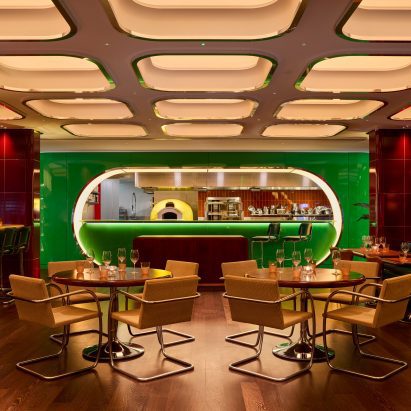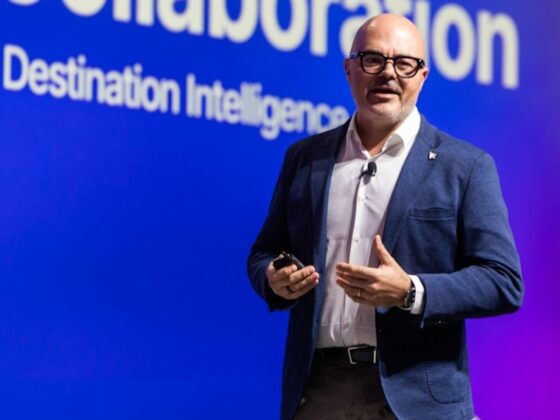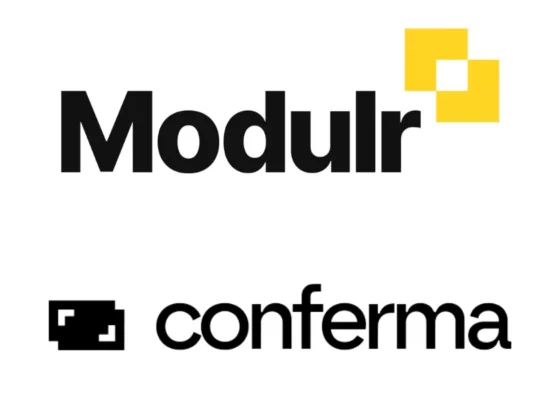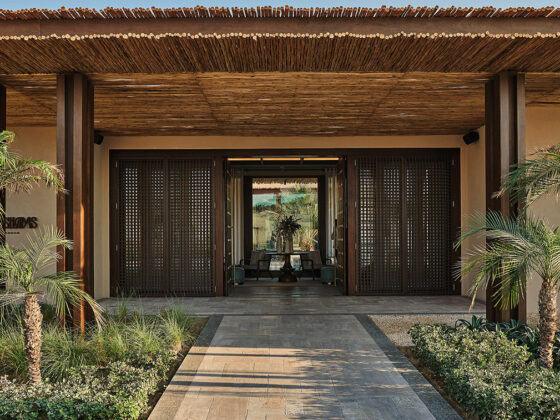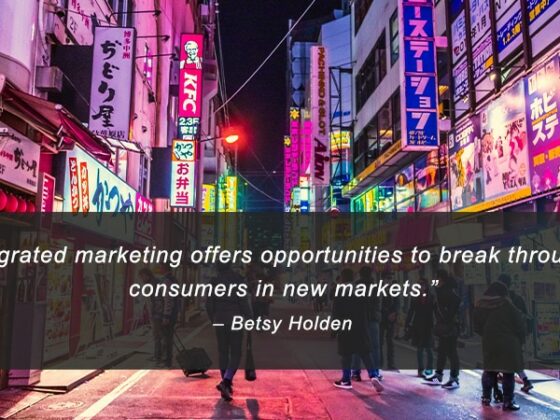Josiah Could the opportunity for us to provide hospitality be so much larger than we imagine? There’s a company I’m watching closely in Norway that has hundreds of hotels and restaurants throughout Scandinavia and absolutely fascinates me. This company used to be known as Nordic Choice Hotels, and you might remember me talking with their VP of Strategic Growth, Christian Lundén, about what they were doing a little while back.
Christian I have been working in the company for many years, trying to figure out new things around hospitality and trying to see new possibilities with new business models, technologies, partnerships, and so on. We have been talking about this since 2018. So it’s not a new thing, but we saw that our most frequent guests are maybe spending like 60 days a year with us on average. And that means that we have like 300 days that we’re not talking to even the most frequent guests. So how can we be more relevant for those people as well? And trying to understand how we can serve services and stuff like that, that maybe doesn’t have to do with the travel. The main thing that we were thinking about was how can we be more relevant for more people more often. We were trying to see how can we break down the walls of hotels and become something more than just something that you’re traveling to and become more in your everyday life.
Josiah Since that conversation, Nordic Choice Hotels went through a total rebrand and repositioning to become Strawberry. And in this episode, we’re hearing from Carl Oldsberg, the CEO of eBerry by Strawberry, about the remarkable story of this transformation and how it opens up opportunities for them today. Stick around because I think you’re going to leave this conversation as inspired as I am to think more expansively about how we can provide hospitality, grow our businesses, and serve those around us in fresh, creative, exciting ways.
Josiah I connected with Christian a couple of months ago, and he was talking about very innovative ways that you and your team were thinking about what are bigger opportunities for hospitality. And then I saw the announcement, that you went through a major rebrand. Tell us a little bit about that story. What led to that?
Carl What led to it, it was really the pandemic, to be honest, because we had to look hard at what we were doing on our business model and the value proposition that we were offering. So what we did during the pandemic, once we were past the worst of it, we established a strategy process, strategy 2030, just for everyone to look beyond the pandemic. And we wanted to come out of the pandemic stronger than we went into it. And so it involved no consultants, but just a hundred people within the company. That was part of this. It created a lot of engagement and energy in a time that was really tough.
Josiah 100 people across the company! That’s a lot of people. Was this all in one function or how did you put this team of a hundred people together?
Carl Yeah, so this was all different functions, the majority from the head office, but also locally from hotels. And we had different work streams and we did research and then we said, okay, let’s look at what our business looks like today. But yeah, it was a great process and everyone sort of tried to forget about the pandemic and really look forward to what’s coming ahead. So it’s good. And there were really three areas that we looked at. One was the way we use our hotel asset, the property itself because as we all know, people come to travel, they spend the night, they go home. But during the pandemic, that didn’t happen. So we had to rethink how we use the property. And I think one thing that came out of that was we looked at more of the local community and destination where the hotel was located at and reach out to our members that we typically didn’t do. That was close to the hotel. We thought of members as travelers, but now we started communicating a lot more with members locally. So that’s one thing. And then we looked at, you know, we were open 24 seven. It’s not a lot of places – especially small destinations – that have that luxury or opportunity. So we started looking at what can we do on a property level. So we started piloting all sorts of stuff, of course, coworking that a lot of people did. But also showcasing furniture, allowing window shopping opportunities for furniture stores to showcase their products, pop-up stores, and gaming rooms. We partnered up with a farming solution that would both allow us to show the farming in the lobby and allow us to distribute that to our kitchen, but also sell plants, and herbs in our lobby. So also a sustainability initiative. So it’s a lot of things. And then the hotel, I don’t know if Christian mentioned that, but the hotel feeling. So we went to people’s homes and created the hotel feeling in their homes and brought amenities and cleaned the rooms and cleaned the homes the way we do at our properties.
Josiah Can you tell me a little bit about the thinking behind all this? Because you talked about going through the pandemic, a really tough time. You’re thinking about, at that point, 10 years into the future, the 2030 plan, what’s possible. So what I’m hearing from you is a very expansive way of thinking about hospitality. And you’re thinking about what assets we have? You talked about the 24-7 nature of your properties. You did coworking, but it was more than that. I’m hearing a lot of collaborations with others in the community. So it almost sounds like you’re trying to turn hotels into these hubs in their neighborhoods, in their communities, in their cities. Was that the thinking?
Carl Yeah, that’s right. And obviously, that came out of, as I mentioned, from the pandemic and rethinking the way we look at the hotel, not just as a destination. So there was one thing that we looked at was hotel assets. Then we had two other pieces was more the hotel experience. And the third was a loyalty program. Those were three areas that we narrowed down and tried to revamp and look at it in different ways.
Josiah Tell me a little bit more about your loyalty program, because you mentioned early in this process, that you went to your members. So what did the loyalty program look like? I guess, what were you working with at the time there?
Carl Yeah, so wI think a lot of the hotel companies were doing looking at loyalty programs as very transactional – come and spend 10 nights and get one night free and you can use your points. But it was very transactional rather than emotional loyalty. At least we weren’t successful in creating that emotional bond. So we wanted to create something very different through our loyalty program. So we did a few things. We’re still going to keep our loyalty program, but that’s going to be a lot more focused on driving that emotional value. So everything from sustainability, you want to feel good about yourself in a purchasing decision to partnering up with hotel companies, preferred hotels, Choice Hotels, where we can provide accommodation. Then also more on the experience side, we partner up with Live Nation. So we can offer our members a pre-sale opportunity or VIP events, going to concerts, leveraging or being awarded that you’re choosing us and in that way or in that fashion where they get that experience outside of the hotel experience.
Josiah So if you think about these building blocks together, it creates the foundation for this really compelling story, right? It’s not just Nordic Choice Hotels, which was an amazing collection, right? But you think about the collaborations or these activations on your property with all these, everything from furniture to, I think you mentioned farming, to providing hospitality in the homes of people to these experiences. So it seems like you’re surrounding your members with a much broader experience than the typical stay, right? I guess if you had to define that emotion that you were trying to provide your members, what would that be?
Carl That was a good question. We wanted to become more relevant to more people more often through the Strawberry’s universe that we’re trying to create. And it really is that we want to be a bigger part of our guests’ and customers’ lives. On average, within our region, they spend about two nights at a hotel on average. So there are 363 days where we’re not relevant. So we want to become a brand, a company that is more top of mind outside of that hotel experience. So we purposely, before we were Nordic Choice Hotels, but now it’s just Strawberry. So we don’t have “hotel” in our company name anymore, just so we can allow for that growth and to become more than just that hotel partner.
Josiah It sounds like you did a lot of testing over the last couple of years. I’m curious about all those collaborations that you did. Maybe let’s focus on the properties themselves because all this is interesting, but that’s really interesting to me. Some of those collaborations on property with retailers, did you find some of them resonated with your members or your guests more than others?
Carl I’m not sure if it resonated on any particular partnership, but the reactions that we’re getting from our members and our guests is more, they appreciate that we’re doing so much more than just the check-in process at a hotel. That they can enjoy because a lot of people travel a lot and maybe not the most exciting thing to do is to leave the family and go on the road. So to create that experience, that is something different than just a hotel room. That’s the feedback that we’re getting. That’s the excitement. I’m not sure if I could pick a particular partnership or feature that has been talked great about more than others, but I think it’s the concept itself.
Josiah That makes a ton of sense actually, though, because I think when you’re very creative and you’re collaborating a lot, it’s sometimes hard to quantify that. And I was talking with someone yesterday who was saying as marketers, but I think this is broadly applicable, is sometimes we get so obsessed around some analytics or performance outcomes where experience is sometimes a little bit intangible, sometimes hard to quantify. And maybe that’s okay. Maybe to create something really unique and special, you need to just keep trying things. And I’m sure there are other metrics that you’re watching, but sometimes it’s not necessarily it was this collaboration that did this thing.
Carl That’s right. And speaking of all the KPIs and metrics that we established, there was, first of all, a lot of discussion and debating on what should we measure. What does success look like? And of course, brand awareness is important. Taking market share is important, but loyalty has really floated off as the most important one, and been trying to figure out how we actually measure loyalty. But I think that has been the most important North Star, if you will. But throughout the process, there’s been a lot of debate on what’s most important. And then we do this big launch, we put all this money into renaming the company. And then of course, there’s like, what do the numbers look like and where’s the business? And look, it’s absolutely a generated business, but that’s short term, but that’s not what we’re after here. We’re trying to build for the long term and the 2030 horizon.
Josiah You have to have that long-term outlook. I am curious, though, you know, recognizing that, and it’s only been a couple of months since you relaunched. What have you seen or heard? It could be in the loyalty area or it could be broadly. I’m curious now a couple of months into this rebranding what the results have been so far.
Carl You know what I think the results have really been how this process or how this initiative has been received both from the press, but also our customers, our guests, our members, and the hotels and franchisees. I think that it’s probably what’s been the most exciting is that everyone is saying it’s so right, it’s so impressive coming out of a pandemic and going into this. And it’s also so timely, it’s relevant, and it’s a good way of also allowing yourself to grow even bigger and not limit yourself to this hotel space. So that’s one thing that we’ve heard from members, guests, and also the media. So that’s been great. And in terms of hard numbers, we were quite surprised by how quickly brand awareness went up with this new brand. In Norway, Sweden, and other markets, are more of a struggle, but in Norway, Sweden, it actually exceeded our expectations. So that’s been really great as well. But I think as I said, more of the qualitative effects and impact has been, how should I put it? We didn’t expect that big of a reaction around it. So that was really nice to see.
Josiah It’s exciting. Brand building and brand awareness take a long time. There’s no two ways around it. You could have all the money in the world and it just takes a while. But I’m curious, you talked about the 2030 plan, and I think you’ve touched on this a few points in our conversation, but it seems this unlocks so many growth opportunities for you. You’ve been experimenting very broadly over the past couple of years. I’m curious for you today, what are you most excited about this enabling you to do in the future?
Carl I think it’s the platform that we created because the innovation and the ideas that are coming from within the company are vastly different now from what it was before because it is a much broader platform and it’s not only one vertical, but you could create more verticals. You can expand the verticals that we have in a completely different way. So that is probably what I’m most excited about. The opportunity that is created. And the energy and drive within the company to really start thinking differently about our business to come up with, you know, Hey, I have this idea. Well, go ahead, go pilot it in one of our hotels. And so that’s really exciting to see the engagement within the company is absolutely amazing.


